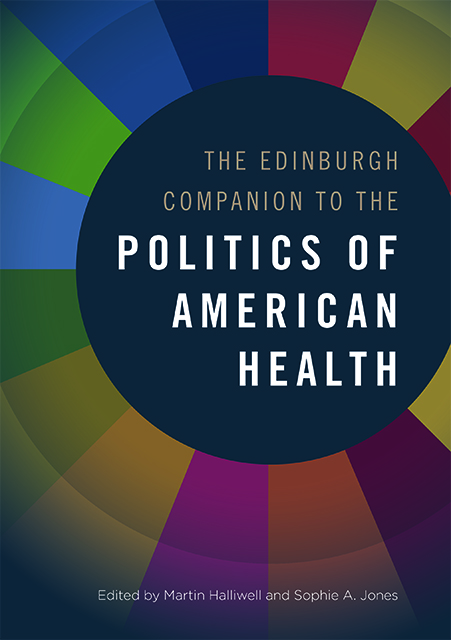Book contents
- Frontmatter
- List of Contents
- Notes on Contributors
- Introduction: The Political Landscapes of American Health, 1945–2020
- I Geography, Community and American Health
- II Critical Health Conditions: Debates and Histories
- III The Politics of Children's Health
- IV The Institutional Matrix of Health Care
- V The White House, Congress and Health Reform
- VI Justice, Ethics and American Health
- VII Public Health and Global Health
- General Bibliography
- Index
VII - Public Health and Global Health
Published online by Cambridge University Press: 12 August 2023
- Frontmatter
- List of Contents
- Notes on Contributors
- Introduction: The Political Landscapes of American Health, 1945–2020
- I Geography, Community and American Health
- II Critical Health Conditions: Debates and Histories
- III The Politics of Children's Health
- IV The Institutional Matrix of Health Care
- V The White House, Congress and Health Reform
- VI Justice, Ethics and American Health
- VII Public Health and Global Health
- General Bibliography
- Index
Summary
Questions of public health hit news headlines on a global scale when in the early months of 2020 the first cases of Covid-19 were reported in Asia, North America and Europe. A wave of earlier twenty-first-century epidemics – Zika, SARS, MERS, Ebola, H1N1 – theoretically should have equipped the global community with the surveillance strategies needed to mitigate the rapid spread of the causal virus SARS-CoV-2, which was distinctive in its high level of transmissibility and mutability, as new variants emerged during the course of 2020–22. Leading US public health officials Anthony Fauci, director of the National Institute of Allergy and Infectious Diseases, Deborah Birx, White House Coronavirus Response Coordinator, and Robert Redfield, director of the Centers for Disease Control and Prevention (CDC), were very visible on television during 2020 in presenting public health advice and data on the pandemic, whereas in other historical phases public health officials have rarely made headline news, especially over such a sustained period. The composition of the White House coronavirus response team did not mean federal agencies were coordinating seamlessly though, or that the Trump administration was fully cognizant of the need to maintain consistent public health messages in the face of a rapidly evolving emergency, caused by what Fauci called one of the most ‘unpredictable’ of viruses.
It is important to remember that the US public health system has a complex infrastructure and a considerable reach in civic life, having expanded over the course of the twentieth century via the governance and surveillance roles of the CDC and the US Public Health Service as agencies within the Department of Health and Human Services. The fact that the responsibilities of public health agencies go well beyond infectious disease control – spanning occupational health, environmental health, bioterrorism defence and health education, among other functions – shows how public health challenges are both widespread in American society and cannot be reduced to a media spectacle at times of national emergency. While sustained congressional funding of public health services to an adequate level is an ongoing concern for the scientific and medical community, the Covid-19 pandemic reveals the functional and ethical importance of such a politically independent community to ensure that health messages are accurately communicated, and to push federal and state authorities to make decisions informed by evidence-based epidemiology and robust scientific data, ideally of an evolving, granular, and comparative nature.
- Type
- Chapter
- Information
- The Edinburgh Companion to the Politics of American Health , pp. 531 - 534Publisher: Edinburgh University PressPrint publication year: 2022



